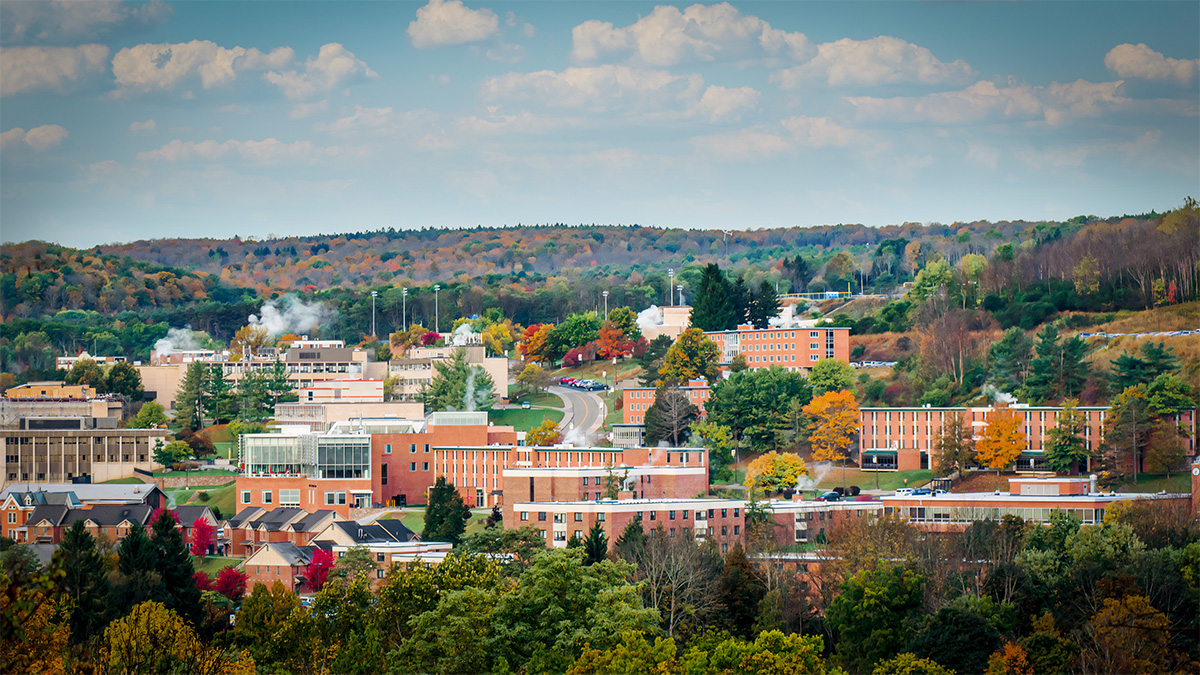
At a glance
Cornell University's 16th Annual Buckwheat Field Day will be held at Alfred State College, on Tuesday, Aug. 24, from 1-4 p.m.
Thomas Björkman, associate professor of vegetable crop physiology at Cornell, has organized the event for the last 15 years. The event is hosted by Dr. Brian Baker, director of the Center for Organic and Sustainable Agriculture (COSA) at Alfred State College.

Cornell University's 16th Annual Buckwheat Field Day will be held at Alfred State College, on Tuesday, Aug. 24, from 1-4 p.m.
Thomas Björkman, associate professor of vegetable crop physiology at Cornell, has organized the event for the last 15 years. The event is hosted by Dr. Brian Baker, director of the Center for Organic and Sustainable Agriculture (COSA) at Alfred State College.
The top buckwheat-growing region in the 19th century was Northern Pennsylvania and southern New York. While other crops are now more common, the tradition of raising buckwheat here continues. There are about 20,000 acres in production, but many growers plant only a few acres of buckwheat. The crop's advantages include a short growing season - it isn't planted until July - and low cost. There is an opportunity to increase production because the demand for buckwheat far exceeds supply.
Most of the buckwheat grown in the Twin Tiers is sold to Birkett Mills in Penn Yan and ends up in Wolff's Kasha, a traditional grain food from Eastern Europe that is sold in supermarkets nationwide. It is also in buckwheat flour and pancake mixes, as well as handmade soba noodles at New York City restaurants.
The field day is designed to help keep growers up to date on production. Since the markets for buckwheat are global, those who produce it need to use the most competitive methods. In-field demonstrations will illustrate best management techniques for buckwheat grain production, as well as some practices to avoid and their consequences.
The second goal of the field day is for buckwheat growers to meet each other. The network of expertise that existed in the past has eroded, which means that maintaining professional contacts takes more work.
"The Southern Tier and northern Pennsylvania areas have been centers of buckwheat production for centuries," Bjorkman said. "There are still many expert farmers in the area. I look forward to meeting some of them at the field day."
Angela Possinger of Roger Williams University in Rhode Island will share her research on what can and cannot be expected from buckwheat mineralizing phosphorus. That quality has been well known but it has been difficult to use effectively.
An addition to the program for 2010 is a demonstration of summer cover crops. Buckwheat is commonly used as a soil-building, weed-suppressing cover crop, but it is not the only choice. Nationally known cover crop consultant Dr. Elizabeth Dyck will demonstrate some of the other choices, such as sorghum-sudangrass, Japanese millet, phacelia, and crotalaria. She will also describe her efforts to help small growers produce and market organic buckwheat seed for cover crop use. Cover-crop seed production is a farm enterprise that can add several useful pieces to the agricultural economies of rural communities.
All growers who are currently growing buckwheat or who are considering its cultivation are welcome to attend this field day. It is at the COSA research farm on Sugar Hill Rd. in Alfred. Turn north of N. Main St. just west of the cemetery. Pre-registration is not required and there is no charge.
